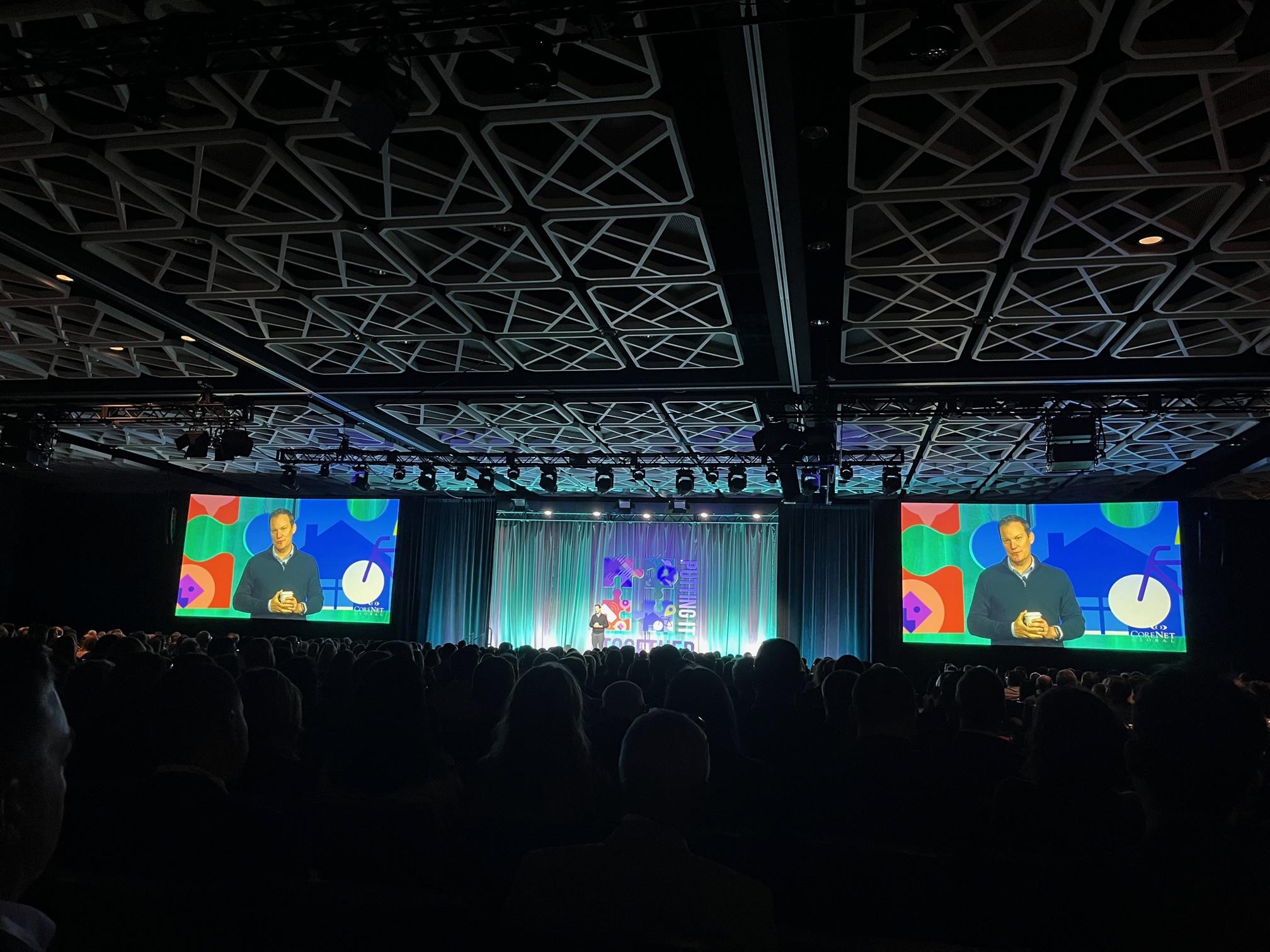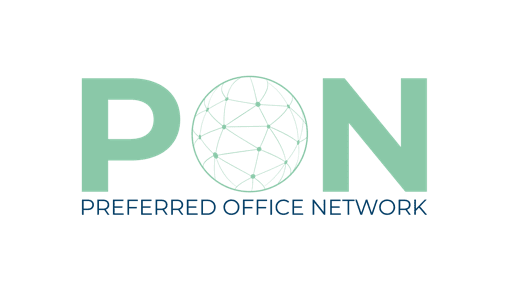
CoreNet 2022 Global Summit Key Takeaways — Promoting Workplace Agility in a Rapidly Evolving World
In the past 2+ years, our collective comfort zones, our understanding of the world, how we live in it, how we work in it, and how we do business, have all been called into question. Now that we’re about to enter 2023, a new inquiry looms large: Where do we go from here?
As the world starts to define a new normal in all aspects of our lives, corporate real estate executives and the businesses their industry serves are looking for answers to how we all fit together. How do people, place, and purpose align in today’s society? How can workplaces transform so that they meet the needs of both the organizations and the individuals who power them?
The Preferred team recently attended the annual CoreNet Global Summit in Chicago, where we connected with fellow thought leaders in corporate real estate, workplace, and infrastructure management. What came out of these invaluable conversations, speaker sessions, and networking opportunities was an overarching theme: The new workplace will be defined by flexibility, agility, and empathy.
Here we share several of our key takeaways from this impactful assemblage of professionals who are reimagining how our built environments can lead to more collaboration, creativity, and community in a world craving connection.
The All-Important Employee Experience
The Great Resignation, the move to remote and hybrid work arrangements, a greater emphasis on worker health and wellness — the attention now given to the employee experience has never been more pronounced. How important is employee happiness to your organization?
In a compelling CoreNet session, best-selling author, former Harvard professor, and happiness expert Shawn Achor covered the connection between happy employees and successful businesses. During his talk, the author of The Happiness Advantage explored the power of positive psychology and how making small changes can lead to greater personal satisfaction and improve professional performance. The old way of thinking was that success leads to happiness; Achor makes the argument that just the opposite is true.
Our takeaway: If you encourage your employees to have a positive mindset through a daily habit of gratitude, they become happier people overall. And, as research in human potential demonstrates, happier people are more successful.
The most innovative and resilient employers recognize that happiness is not an individual sport. The organization has to be interconnected across departments and job roles — we truly are better and stronger together.
The Office Is at an Inflection Point
Remote/hybrid work isn’t going anywhere — it’s now an expected part of our everyday experience. Gallup research revealed that as of early this year, 42% of full-time workers had adopted a hybrid schedule and 39% are working entirely from home. More importantly are the numbers of workers who would like to keep these flexible work arrangements indefinitely: Findings from Slack’s Future Forum think tank show that executives and non-executives alike are embracing the hybrid working model, with 65% of all workers saying they would prefer working some of the time from the office and some of the time remotely.
How can employers balance the employee desire for more flexibility with their own demands for productivity and performance that drive their business? By recognizing that different types of work are better suited to different ways of working, i.e. heads-down work can be done anywhere (think: writing reports, managing data, regular correspondence, and the like), but brainstorming sessions, collaborative team meetings, and client get-togethers are best served in a communal atmosphere. There is still a need for the office, but the office needs to be reimagined.
In a conference session covering current return-to-office trends, we learned megacities like New York, London, and Tokyo, where commutes are long and stress levels high, trends show that employees are reporting to the office 1-2 times per week, working longer days to fit in face-to-face meetings and collaborative sessions. In regional cities, employees are coming into the office more frequently, but for shorter days. Micro- and medium-sized cities are leading the return to office race.
Our takeaway: Employers should approach their return-to-office policies as a magnet rather than a mandate. Think about setting your employees up for success — what work arrangements would support them the most right now and how can you provide them?
Adopting an Agile Leadership Model
Today’s economic and employment outlook calls for leaders who embrace agility and adaptability to stay competitive in uncertain times. Now is not the time for set-it-and-forget-it HR policies or stale, stagnant ideas about the workplace.
The way we work is changing faster than the speed at which we can build it, so leadership needs to adopt and implement a constant adjustment period after delivery that continually adjusts, reassesses, and, yes, funds an evolving workplace for long-term success.
In a speaker session devoted to the hallmarks of Agile Leadership, we learned the most successful leaders today:
-Are comfortable when facing the unknown
-Listen with curiosity and welcome learning opportunities
-Aren’t afraid to experiment
-Set a vision and ensure proper communication across the organization
-Have the courage to trust employees while staying true to the overall organizational vision
-Take the time to self-reflect and self-assess
The Future Is Flex
The question of how to get people back to the office is up for debate, but one thing is certain: Staying flexible and adaptable, as well as incorporating employee opinion, will serve employers well.
From coworking spaces, meeting rooms, and private offices to day passes, hot desks, and virtual offices, Preferred enables enterprise clients with a range of workplace options to offer their employees. The power of choice: It just might be the solution we’re all looking for in our new vision for the future of work.

